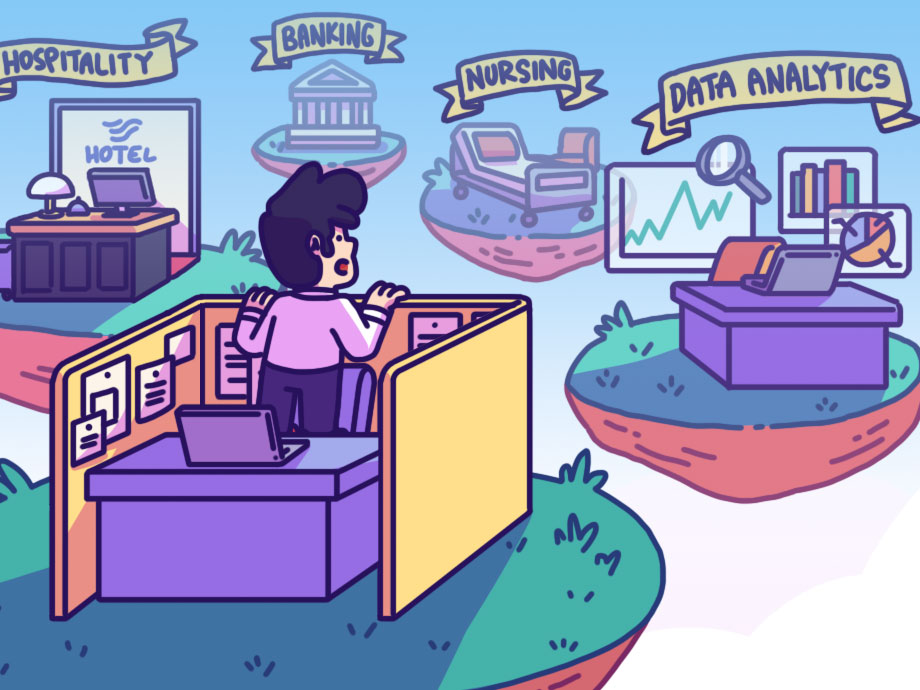Life | Article
How I Learned The Importance Of Preventive Care For A Healthier Future
by The Simple Sum | 28 Nov 2024

This content is brought to you by Prudential.
I used to believe that health was something you only worried about when things went wrong.
If I wasn’t unwell, I didn’t see the point in going to the doctor – why spend money on check-ups when I felt fine?
Well, that is until a simple conversation changed my perspective completely. It started over coffee with an old friend. While we were chatting, she casually mentioned that her doctor had discovered a serious medical condition during a routine health check-up. She didn’t think of getting it checked earlier because she felt fine. However, thanks to that screening, they were able to catch the problem early.
The idea of being blindsided by a health issue really hit me. Could I be walking around with a ticking time bomb, just because I wasn’t paying attention?
The importance of preventive care
That conversation was a wake-up call for me. I started thinking about my own health in a way I never had before. The truth is, we often take our health for granted, assuming that if we feel fine, everything must be fine. But the reality is that many health issues don’t show symptoms until the disease is already at an advanced stage. By then, it would be more difficult and expensive to treat.
This is where preventive care comes in. Instead of waiting for an illness to strike, it’s about taking steps to catch potential issues early, before they become major problems. Regular screenings, vaccinations, and health checks can make a world of difference, not only in keeping us healthy but also in saving us from the financial burden that comes with treating a serious illness.
Take something like high blood pressure, for example. It’s often called the “silent killer” because you can have it for years without knowing. But a simple, routine check-up can spot it early, allowing you to manage it before it leads to more serious problems like heart disease or stroke. The same goes for cholesterol checks, cancer screenings, and other routine tests. These simple, and often quick procedures could literally save your life!
Related
Rising healthcare costs and risks
Another thing I learned is that preventive care is not just about health, but also about protecting your finances. Medical bills can pile up quickly, especially with the rising cost of healthcare. Even a minor surgery, such as an appendectomy or tonsillectomy, can result in significant expenses, often amounting to thousands of dollars. That’s why it’s more important than ever to stay ahead of health issues before they escalate into something more serious.
I remember my friend sharing how much she spent on medication, even though she had insurance. The financial stress of her diagnosis was almost as overwhelming as the diagnosis itself. This made me realise that if you can invest in preventing these problems, you’re not just avoiding potential illness – you’re also shielding yourself from a financial hit!
Related
Making preventive care a habit
After that coffee chat, I decided to take action. I booked my first full health screening, which included everything from blood tests to scans, and I felt a sense of relief just knowing I was being proactive. The process was simple, and the peace of mind was invaluable. I realised that the cost of these screenings was minimal compared to what I’d face if something serious were caught too late.
Beyond that, I started incorporating other preventive habits into my life. I made sure my vaccinations were up-to-date, I started eating healthier, and I began to pay more attention to my physical and mental well-being. While I didn’t make huge changes overnight, I slowly built habits that helped me take better care of myself.
Related
Why a comprehensive health plan matters
Insurance was another big lesson for me. Before, I didn’t pay much attention to my health coverage. I figured as long as I had basic insurance, I was good to go. But these policies only kick in when you are already unwell or need hospitalisation, which means you might be missing out on benefits that can help you stay healthy in the first place. Plus, the coverage may not be sufficient, especially if you seek treatment in a private hospital, where costs can be significantly higher.
What I didn’t know was that some insurance companies cover preventive care. For example, PRUExtra Preferred CoPay is designed to make healthcare more affordable in the long run. It not only provides access to preventive services like health check-ups and consultations, but also gives you access to a network of panel and non-panel healthcare providers.
If there’s one thing I’ve learned, it’s that health isn’t something you should take for granted. Preventive care is key to staying healthy and avoiding unexpected medical bills down the road. Whether it’s regular check-ups, screenings, or vaccinations, staying proactive about your health can save you from a lot of stress and money in the long run.
Related
Sponsored content by Prudential.
Preventive healthcare is more important than ever, and PRUExtra Preferred CoPay helps you stay ahead by providing access to preferred private healthcare*. This plan is a value-for-money supplementary option, offering an extra level of protection at a more affordable premium, so you can better manage healthcare costs while ensuring peace of mind.
As a supplementary plan to PRUShield, PRUExtra Preferred CoPay allows you and your family to focus on your well-being, knowing that comprehensive coverage supports your long-term health. From preventive care to hospital stays, Prudential’s plan ensures your health remains a top priority.
Learn more about PRUExtra Preferred CoPay here!
*Applicable to panel and non-panel providers only.






















